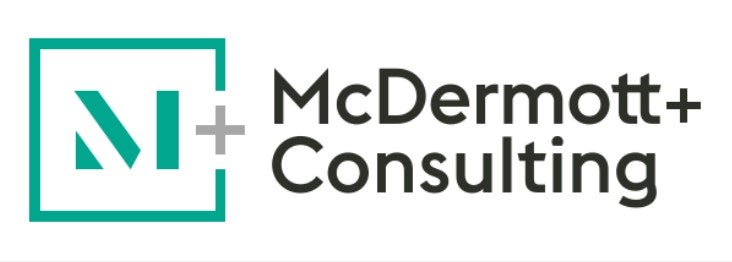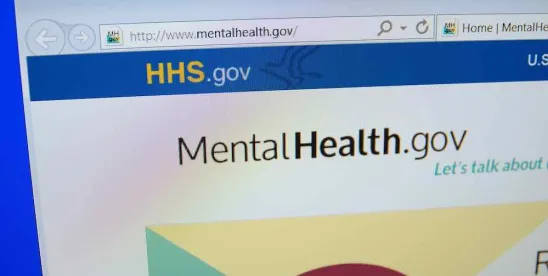THIS WEEK’S DOSE
- HELP Committee Releases 340B Report. Health, Education, Labor, and Pensions (HELP) Chair Cassidy (R-LA) released findings from his investigation and laid out potential reforms to the 340B Drug Pricing Program.
- CMS Releases FY 2026 Medicare IPPS Proposed Rule. The Centers for Medicare and Medicaid Services’ (CMS’s) fiscal year (FY) 2026 hospital Inpatient Prospective Payment System (IPPS) proposed rule includes payment updates, proposals related to the Transforming Episode Accountability Model, and deregulation.
- CMS Releases Additional FY 2026 Medicare Proposed Rules. The rules would update the hospice wage index and the skilled nursing facility, inpatient psychiatric facility, and inpatient rehabilitation facility prospective payment systems.
- President Trump Signs EO on Lowering Drug Prices. The executive order (EO) includes directives to lower Medicare drug prices and reduce anticompetitive behavior.
- Administration Acts on Gender-Affirming Care. A CMS letter reminded states of existing Medicaid requirements, a separate US Department of Justice memo outlined potential future action, and the US Department of Health and Human Services (HHS) created an online portal for whistleblowers.
- President Trump Sends Memo on Immigrants’ Use of Medicare and Medicaid Benefits. Various departments, including HHS, were directed to ensure ineligible immigrants do not receive benefits.
- NIH Releases New Grant Guidelines. The National Institutes of Health (NIH) expanded the actions that are prohibited by antidiscrimination laws.
- Administration Continues Federal Workforce Restructuring. The latest proposal seeks to create a new class of at-will civil service employees.
- President Trump Issues EO on Higher Education Accreditation. The directive includes medical school accreditation reforms.
CONGRESS
HELP Committee Releases 340B Report. The report includes findings from Chair Cassidy’s long-running investigation into the 340B program that looked at two hospitals, two federally qualified community health centers, two contract pharmacies, and two drug manufacturers. The report highlights five potential reforms for Congress to consider:
- Requiring covered entities to provide detailed annual reporting on how 340B revenue is used to ensure direct savings for patients, creating more transparency into the link between program savings and patient benefit.
- Addressing potential logistical challenges caused by increased administrative complexity; these burdens may impede patient benefit from the program.
- Investigating the types of financial benefits that contract pharmacies and third-party administrators (TPAs) receive for administering the 340B program to ensure that increasing fees do not disadvantage covered entities and patients.
- Requiring transparency and data reporting for entities supporting participants in the 340B program (i.e., contract pharmacies and TPAs).
- Providing clear guidelines to ensure that manufacturer discounts actually benefit 340B-eligible patients and examining legislative changes to the definition of eligible patient and contract pharmacies’ use of the inventory replenishment model.
ADMINISTRATION
CMS Releases FY 2026 Medicare IPPS Proposed Rule. The rule, released April 11, 2025, proposes a 2.4% payment rate. A fact sheet is available here.
New proposals include:
- Updates to the Transforming Episode Accountability Model (TEAM), which would remain a five-year mandatory model but would include a limited deferment for certain hospitals, neutral scoring on quality for hospitals with insufficient quality data, changes to the payment methodology and risk adjustment, and expansion of the skilled nursing facility (SNF) three-day-rule waiver. The model is slated to begin on January 1, 2026.
- A request for comments on future quality measures supporting the Make America Healthy Again priorities of well-being and nutrition and on proposals to remove quality measures on health equity and social determinants of health.
- A deregulation request for information (RFI) on ways to streamline regulations, reduce administrative burdens, and identify duplicative requirements across the Medicare program. Responses should be submitted through a web-based form, separate from other comments on the rule.
CMS Releases Additional FY 2026 Medicare Proposed Rules. Additional proposed regulations were released on April 11, 2025. These rules include the same deregulation and quality measure RFIs that were included in the IPPS proposed rule.
Key takeaways include:
- Hospice Wage Index. CMS proposes to increase rates by 2.4% and clarify technical certification regulations.
- SNF Prospective Payment System (PPS). CMS proposes to increase rates by 2.8% and implement operational and administrative updates to the SNF value-based purchasing program.
- Inpatient Psychiatric Facility (IPF) PPS. CMS proposes to increase rates by 2.4% and issued an RFI on the IPF quality reporting program.
- Inpatient Rehabilitation Facility (IRF) PPS. CMS proposes to increase rates by 2.6% and remove social determinants of health patient assessment data elements from the IRF quality reporting program.
Comments on the hospice wage index and SNF PPS are due by June 29, 2025, and comments on IPF PPS and IRF PPS are due by June 10, 2025.
President Trump Signs EO on Lowering Drug Prices. The EO directs HHS to:
- Seek comment within 60 days on revisions to the Medicare Drug Price Negotiation Program for initial price applicability in 2028.
- Coordinate with Congress to address the timing disparity between small-molecule and biologic drugs.
- Conduct a survey to determine hospital acquisition costs for outpatient drugs and propose adjustments.
- Condition health center grant funding on providing insulin and injectable epinephrine at or below the 340B acquisition cost, plus a minimal administrative fee.
- Address payment incentives that encourage shifting of drug administration volume from physician offices to hospital outpatient departments.
The EO directs the CMS Innovation Center to develop a model for high-cost Medicare-covered drugs and biologicals. It also calls on agencies to develop recommendations to reduce anticompetitive behavior from drug manufacturers. Read the fact sheet here.
Administration Acts on Gender-Affirming Care. Pursuant to President Trump’s January EO on gender-affirming care for children, “Protecting Children from Chemical and Surgical Mutilation,” CMS sent a state Medicaid director letter. It states that the use of medical interventions for gender dysphoria in children has increased in recent years and that such interventions can cause long-term harm. The letter reminds states of existing federal requirements, including to ensure care is provided in the best interests of recipients. It reiterates that states must develop a drug utilization review (DUR) program that ensures drugs are appropriate, medically necessary, and not likely to result in adverse outcomes. CMS encourages states to review their DUR programs and indicates there will be additional DUR guidance in the future. Read more in a statement from CMS Administrator Oz.
HHS launched an online portal where whistleblowers can submit a tip or complaint regarding gender affirming care for minors. Read the press release here.
The US Department of Justice issued a memo outlining potential future actions in this arena, including:
- Enforcement of laws outlawing female genital mutilation.
- Investigation of violations of the Food, Drug, and Cosmetic Act and False Claims Act.
- Withdrawal of any regulatory action based on World Professional Association for Transgender Health guidelines.
- Establishment of the Attorney General’s Coalition Against Child Mutilation.
- Legislation that bans gender-affirming care for minors.
President Trump Sends Memo on Immigrants’ Use of Medicare and Medicaid Benefits. With regard to healthcare programs, the memo:
- Directs the heads of HHS, the US Department of Labor, and the Social Security Administration to take all reasonable measures to ensure ineligible immigrants do not receive funds from Social Security Act programs, which include Medicare and Medicaid.
- Directs the attorney general and HHS secretary to ramp up fraud prosecution for all CMS programs.
- Directs the social security commissioner, with the HHS secretary’s cooperation, to ensure death information is up to date.
On April 16, 2025, it was reported that officials from Immigration and Customs Enforcement and the Department of Government Efficiency sought access to a CMS database that includes health and personal information of beneficiaries, including immigrants.
NIH Releases New Grant Guidelines. In its Notice of Civil Rights Term and Condition of Award update (NOT-OD-25-090), NIH alerted domestic recipients that when accepting NIH grant funding, recipients must now certify that they are not in violation of federal antidiscrimination laws. Specifically, the notice highlights that such violations include operation of diversity and equity programs, engaging in “discriminatory equity ideology,” and participation in any prohibited boycott of businesses. Based on the memo, the NIH can terminate financial assistance and recover funds from recipients that engage in prohibited conduct.
Administration Continues Federal Workforce Restructuring. An Office of Personnel Management proposed rule seeks to create a new category of federal employees (“Schedule Policy/Career”) for employees with policy-influencing duties. These are not political appointees, and they currently have federal civil service protections. The new proposed category would remove these protections for an estimated 50,000 employees and instead make them “at-will,” which means agencies could remove them more quickly. Read the fact sheet here.
President Trump also issued a memo extending the hiring freeze on federal civilian employees through July 15, 2025.
President Trump Issues EO on Higher Education Accreditation. With regard to healthcare, the EO directs the attorney general and education secretary to terminate diversity, equity, and inclusion requirements advanced by the Liaison Committee on Medical Education, the Accreditation Council for Graduate Medical Education, or other accreditors of graduate medical education. The EO also directs the education secretary to assess whether to suspend or terminate the council’s status as an accreditation agency. Read the fact sheet here.
QUICK HITS
- Vulnerable House Republicans Express Concerns About Medicaid Cuts. A group of 12 House Republicans sent a letter to House Republican leadership and Energy and Commerce Committee Chair Guthrie (R-KY) stating that they will not vote for any reconciliation bill that reduces Medicaid coverage for children, seniors, individuals with disabilities, or pregnant women, although they emphasized their support for targeted reforms.
- FTC Issues RFI on Anticompetitive Regulations. In response to President Trump’s EO on “Reducing Anticompetitive Regulatory Barriers,” the Federal Trade Commission (FTC) launched a public inquiry into the impact of federal regulations on competition. The RFI invites members of the public to comment on how federal regulations can harm competition, and seeks to understand which federal regulations have an anticompetitive effect. Comments are due on May 27, 2025.
- Commerce Department Launches Investigation Into Imports of Pharmaceuticals, Pharmaceutical Ingredients. The RFI announced that Commerce Secretary Lutnick initiated an investigation to determine the national security effects of imports of pharmaceuticals and pharmaceutical ingredients, including finished drug products, medical countermeasures, critical inputs such as active pharmaceutical ingredients, key starting materials, and derivative products of those items. Comments are due on May 7, 2025.
- House Republicans Launch American-Made Medicines Caucus. House Energy and Commerce Health Subcommittee Chair Carter (R-GA) and Reps. Tenney (R-NY) and Bilirakis (R-FL) announced the launch of a new caucus that will focus on ways to bring the pharmaceutical supply chain to the United States and become less dependent on China for pharmaceutical products.
- FDA Limits Industry Employees From Advisory Committees. The policy directive limits individuals employed at companies regulated by the US Food and Drug Administration (FDA) from serving as official members on FDA advisory committees.
- House Ways and Means Committee Members Send Letter to IRS. The letter from Committee Chair Smith (R-MO), Health Subcommittee Chair Buchanan (R-FL), and Rep. Panetta (D-CA) encourages Acting Internal Revenue Service (IRS) Commissioner Shapley to update and expand the IRS list of services and treatments for chronic diseases covered under an employer-sponsored high deductible health plan.
- HHS Secretary Kennedy Focuses on Autism Spectrum Disorder. In a press conference, Kennedy highlighted recently released data from the Centers for Disease Control and Prevention that found an increased prevalence of Autism Spectrum Disorder. He stated that a large research effort would be underway, with findings published by September 2025, although NIH stated that its goal is just to award research grants by then. Read the press release here.
- House Ways and Means Committee Republicans Issue RFI on OPOs. In an open letter, Chair Smith and Oversight Subcommittee Chair Schweikert (R-AZ) requested information on organ procurement organizations (OPOs) related to their operations, their allocation of resources, and the rules and regulations governing them. This RFI is part of the committee’s broader effort to examine OPOs’ potential violations of Medicare reimbursement rules and US tax law.
- GAO Examines College Student Health Coverage. The US Government Accountability Office (GAO) report found that the percentage of college students with health insurance has increased by 11 percentage points in the last decade, but found that 1.6 million students still lack coverage. GAO identified barriers such as lack of Medicaid expansion and geographic limitations on coverage for students attending school out of state.
- GAO Releases Reports on Defense Healthcare. The first report found that sepsis-related quality measures at medical facilities run by the US Department of Defense (DOD) have been improving. The second report recommended that DOD monitor mental health screenings for prenatal and postpartum TRICARE beneficiaries to ensure the recommended screenings are being provided.
NEXT WEEK’S DIAGNOSIS
Both chambers of Congress will be back in session next week, and the House plans to forge ahead on the reconciliation process during this upcoming work period. It’s being reported that the House Energy and Commerce Committee will mark up its reconciliation package on May 7, 2025, and House Republicans have indicated they plan to have a full bill on the floor the week of May 19, 2025. At the committee level, next week’s healthcare activities include:
- House Education and Workforce Committee hearing on the Employee Retirement Income Security Act.
- Senate Appropriations Committee hearing on US biomedical innovation.
- House Oversight and Government Reform Cybersecurity, Information Technology, and Government Innovation Subcommittee hearing on government IT modernization.
- House Veterans’ Affairs Oversight and Investigations Subcommittee hearing on the VA’s mental health policies.
We await the release of the Trump administration’s FY 2026 budget request, which is expected in the form of an abbreviated, or “skinny,” budget (as is common in a new administration) this month, followed by a full budget request at a later date. HHS confirmed that HHS Secretary Kennedy will testify in front of the Senate HELP Committee, likely after the skinny budget is released next month.








 />i
/>i

